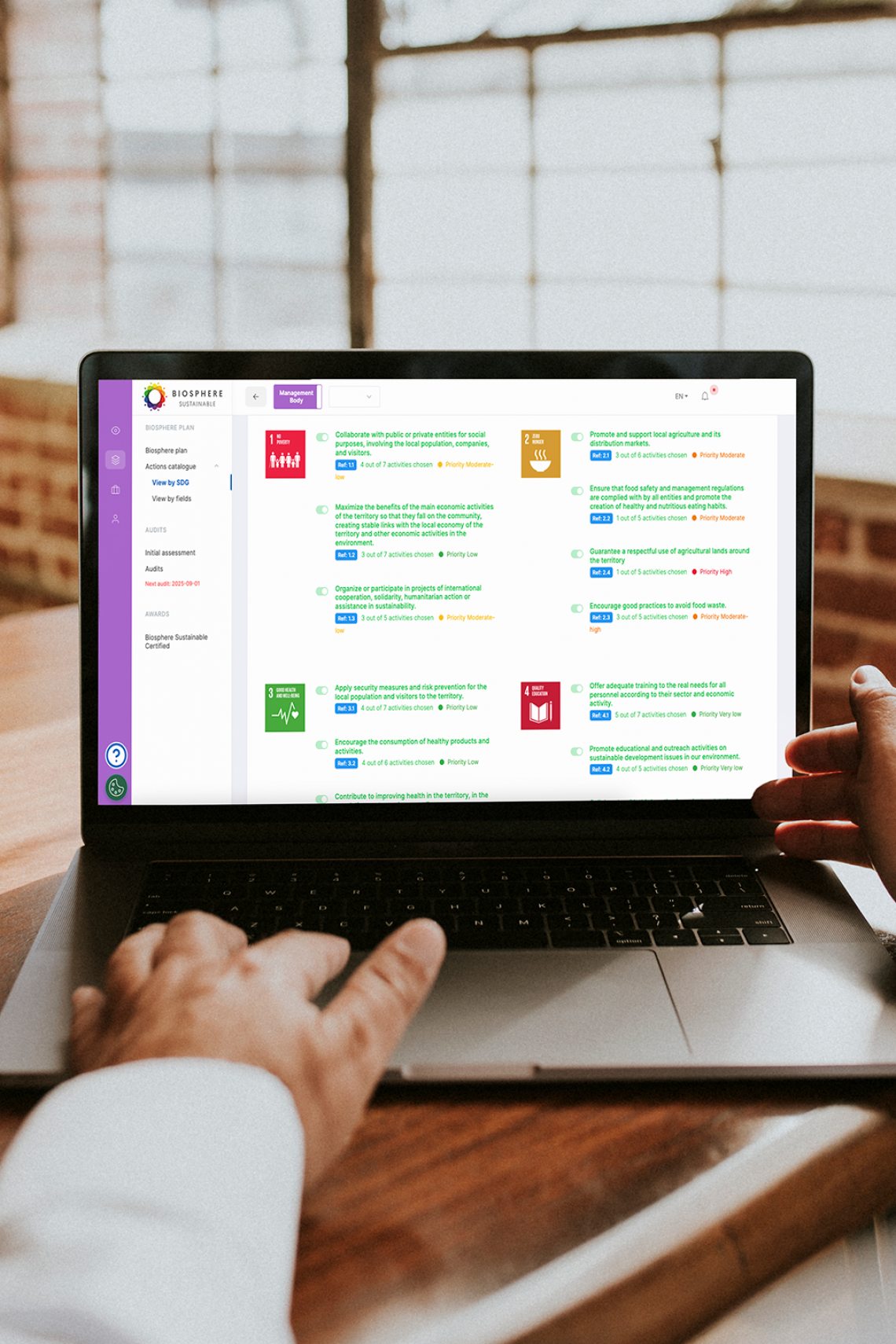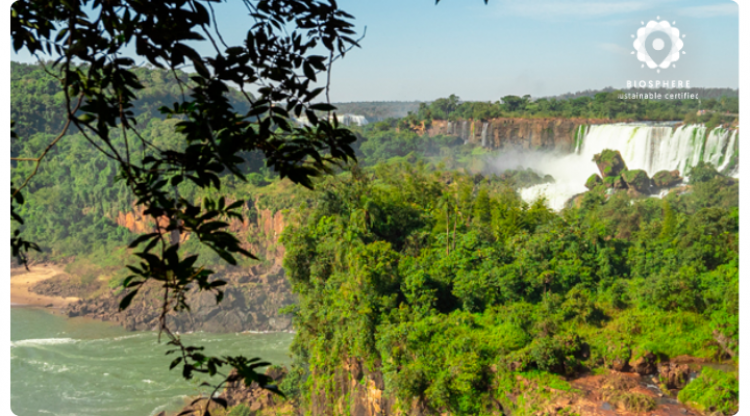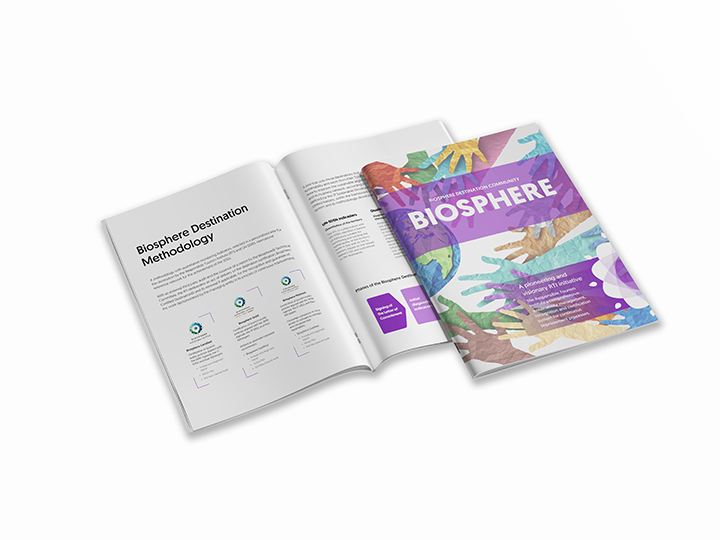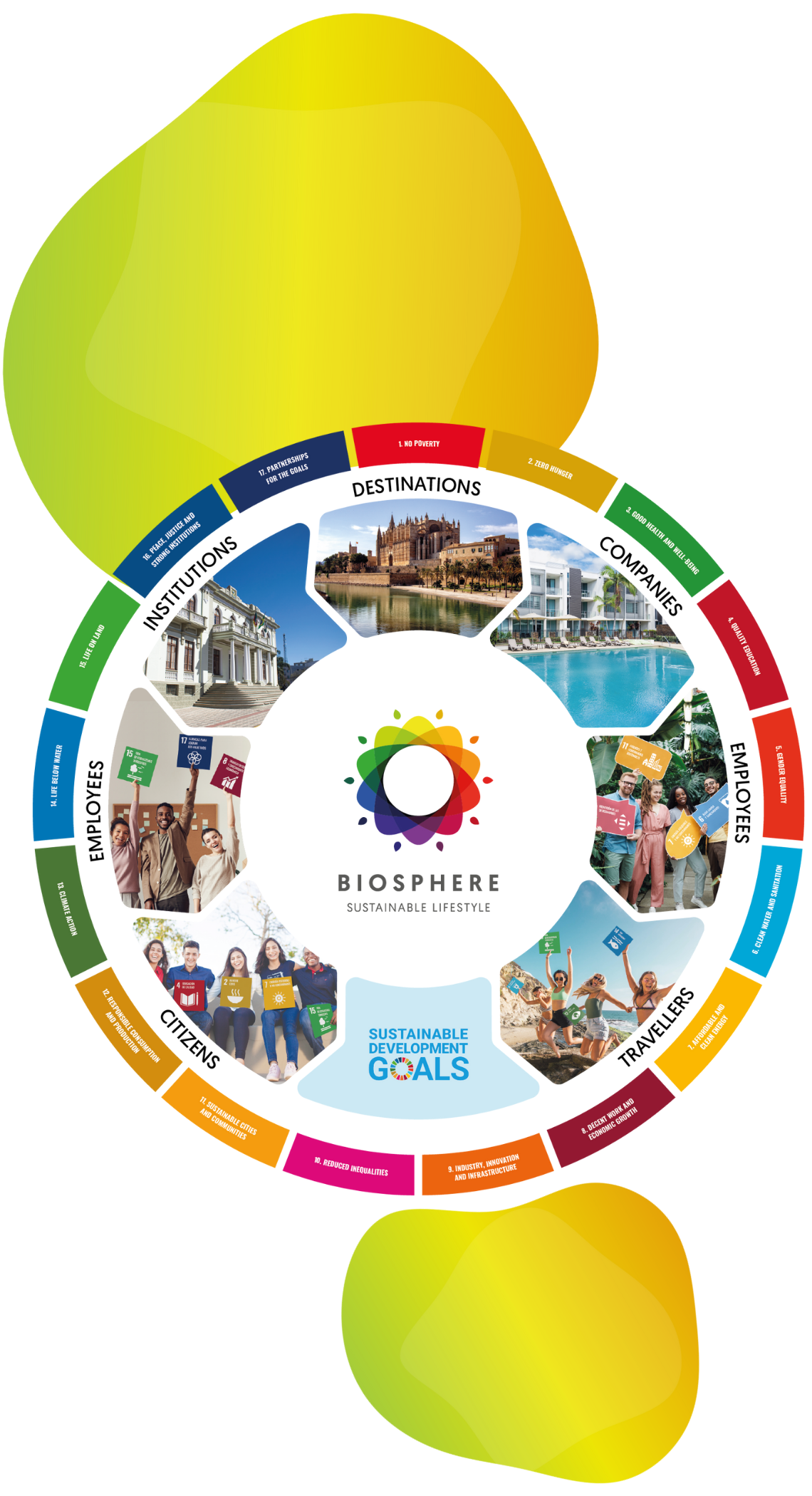
✔️ Implement a tourism-territorial strategy aligned with the Sustainable Development Goals (SDGs)
✔️ Involve your business network, measure the collective impact, and improve sustainable governance
✔️ A complete certification process with 100% online auditing
✔️ Everything on a single platform
Our team will prepare a proposal tailored to the characteristics of your territory. No commitment, 100% adapted to your goals and needs.
If you are part of an administration that designs and implements management or promotion policies for a tourist destination, this system is made for you. With Biosphere you will be able to outline your own tourism-territorial management plan, aligned with the Sustainable Development Goals of the United Nations and prioritizing the main challenges of your destination.
With indicators developed with UN-SDSN specific to your territory, you will have a comprehensive system to manage, measure, and communicate your commitments in a 100% online way, in a process of continuous improvement and annual renewal, with an international, simple, and effective methodology.
It doesn’t matter if your area of responsibility is local, regional, or spans an entire province. We adapt to the reality of your needs, resources, and opportunities for action! All to transform tourism into a driver of change, involving local stakeholders and communicating the destination’s progress clearly and transparently.

Working with Biosphere means having a clear and measurable roadmap, with tools that support you at every step. Gain access to a platform that allows you to plan, track, and communicate your tourism and territorial progress for each action and target of the 2030 Agenda. A system that includes:










With Biosphere, you can go one step further and actively involve your business network in your transformation. Independently of your destination certification process, you can offer companies in your territory access to this international sustainability management and certification system with full or partial discounts on their annual subscriptions.
It is not mandatory or essential to contract and carry out your destination certification process, but it is certainly an additional service that would bring numerous advantages to your action plan and tourism and territorial sustainability strategies, such as:
✔️ Creating a local ecosystem connected by sustainability
✔️ Enhancing the competitiveness and differentiation of companies
✔️ Giving visibility to the most committed entities
✔️ Generating validated data to support the destination’s narrative
✔️ Consolidating your own sustainable tourism observatory, with real and shared metrics on the participation and sustainability progress of your business network.
